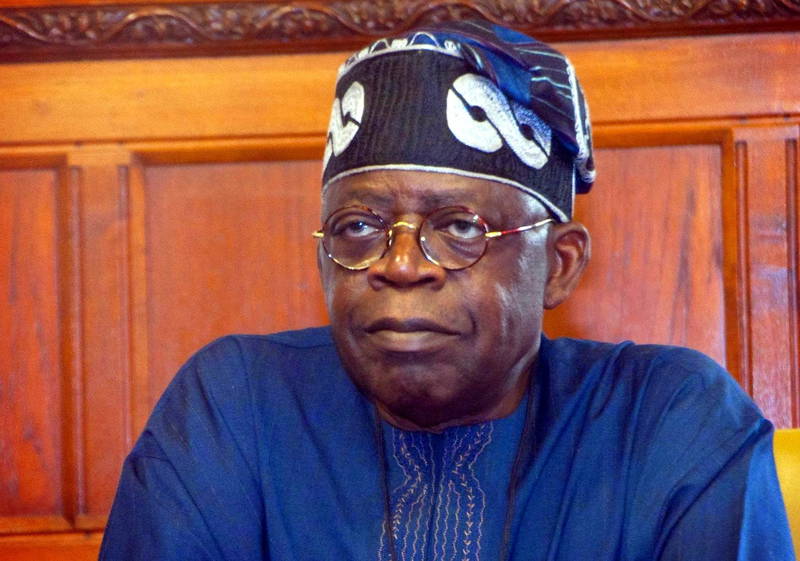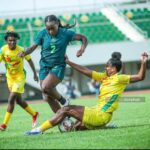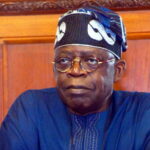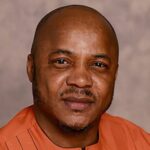Nigeria is a country where the past refuses to die — and, worse still, insists on controlling the present. In a world accelerating toward artificial intelligence, digital economies, and renewable revolutions, Nigeria remains held hostage by a generation that ruled in the 1970s, looted in the 1980s, recycled itself in the 1990s, and still sits on the national chest in 2025. The same faces, the same rhetoric, the same excuses — and the same rot.
The tragedy of Nigeria isn’t that its young people are lazy or uncreative; it’s that their destiny has been hijacked by a gerontocracy that mistakes longevity for leadership. Men and women in their 70s, 80s, and even 90s still hold the reins of power, as if time stopped during the oil booms and the era of typewriters. They have turned public office into a retirement home and the treasury into a personal pension fund.
Nigeria’s leadership class has perfected the art of consuming the future. They drain national resources, accumulate foreign debts, and then turn around to ask the young to be patient — the same young who were born into debt, educated in decay, and now asked to inherit an economy robbed of dignity. It is the old eating the young.
In 2024, youth unemployment hovered around 53%, according to the National Bureau of Statistics. Millions of graduates roam the streets, clutching certificates that mean little in a country where connections matter more than competence. Every year, the government creates more committees, more ministries, more white papers — but no jobs. The only booming industry in Nigeria is political survival.
Meanwhile, the nation’s rulers, those veterans of past misrule, continue to collect multiple pensions, security votes, and allowances large enough to fund a university. They fly to London for medical checkups while public hospitals rot. They send their grandchildren to school in Canada while Nigerian universities remain closed for months. They hold Thanksgiving services when they “win” rigged elections, thanking God for the chance to keep looting with impunity. And yet, they dare to call the youth “lazy.”
This generation of Nigerian youth has inherited a country where hope has become an act of rebellion. It is an inheritance of emptiness. The average young person is trapped between two impossible choices: to stay and endure or to leave and start over in another land.
Every week, hundreds of young Nigerians risk the desert and the Mediterranean, not because they hate their homeland, but because their homeland has rejected them. The brain drain has become a brain exodus—doctors, engineers, coders, nurses—all fleeing a system that considers brilliance a threat. The airports are filled with tearful goodbyes; the streets are crowded with angry survivors. Nigeria has become a place where the best minds must leave to live, while the worst minds stay to steal. Yet, the old guard still smiles for the cameras, cutting ribbons and commissioning failures.
In Nigeria, power isn’t a calling; it’s a family affair. The same politicians who mismanaged the country in the 1980s are back in 2025, wearing new-colored agbadas but carrying the same corruption in their pockets. They rotate offices like musical chairs — one becomes a senator, another becomes a minister, a third becomes the chairman of a board he doesn’t understand. It’s a cult of the ancients.
We have presidents who once served as military heads of state, governors who were once ministers under military regimes, and legislators who have been in parliament since democracy was born. They speak of change as if it’s just a slogan, not a moral obligation. These are men who see leadership as an inheritance and public money as compensation for their age. They are allergic to retirement and addicted to staying relevant. They no longer rule to build; they rule to remain visible. But the cost of their vanity is generational poverty.
Sadly, the greatest tragedy isn’t even the greed of the old — it’s the silence of the young. Nigeria’s youth make up over 70% of the population, yet they remain politically invisible. They dominate TikTok, not parliament. They trend hashtags but can’t trend policies. They shout online, but whisper at the ballot box. Every election, the same cycle repeats: wealthy old men with deep pockets and shallow visions buy the votes of hungry youths with sachets of rice, N1,000 notes, and empty promises. The youth who should be storming the ballot box end up trading their future for a plate of yesterday’s leftovers. The future cannot win if it keeps kneeling before the past.
This isn’t just a generational gap — it’s a full-blown generational war. On one side are those who built Nigeria and then broke it. On the other are those who have never seen a working Nigeria but are asked to fix it. The past has stolen the future — through corruption, incompetence, and intentional suppression of the new.
But history shows that no empire of decay lasts forever. The Arab Spring was sparked by youth despair. Sudan, Senegal, Chile — all have seen young citizens rise to reclaim their countries. Nigeria’s turn will come, not through violence, but through vision. It starts when young Nigerians realize that their power is not in begging for inclusion but in taking it — in the boardroom, the ballot box, and the street. It begins when the echoes of competence become louder than the cacophony of tribe, and courage becomes more valuable than connections.
Nigeria stands today like an ancient house cracking under the weight of its own arrogance. The roof leaks corruption, the walls reek of deceit, and the foundation shakes from years of lies. The elders who claim to protect it are the same ones who stole the cement. But the youth must understand something crucial: the old will not willingly give up the keys to the future. They won’t step down out of shame – they are disgracefully shameless; they need to be forced out by accountability. This country doesn’t need another cycle of recycled leaders; it requires a revolution of integrity — a cleansing of conscience.
As Chinua Achebe once wrote, “The trouble with Nigeria is simply and squarely a failure of leadership.” That failure has now metastasized into a failure of imagination. The past keeps repeating itself because the future is too afraid to fight. There must now be a rebellion of purpose. Nigeria’s young must now become unreasonable — unreasonably bold, unreasonably visionary, unreasonably intolerant of mediocrity. It is time to end this national geriatric monopoly. It is time to get into what John Lewis called “good trouble”. It is time to say, “Enough.”
The same old politicians have stolen enough — our oil, our dignity, our dreams. They have turned the national anthem into a dirge and the flag into a shroud. But their time is running out. Every generation, says Frantz Fanon, must discover its mission, fulfill it or betray it. The mission of Nigeria’s youth is clear: to reclaim the future from the clutches of the past. The past has stolen too much already. It’s time to take the future back.
Way past time.
Dr. Vitus Ozoke is a lawyer, human rights activist, and public commentator based in the United States.
- Editor













Comment here